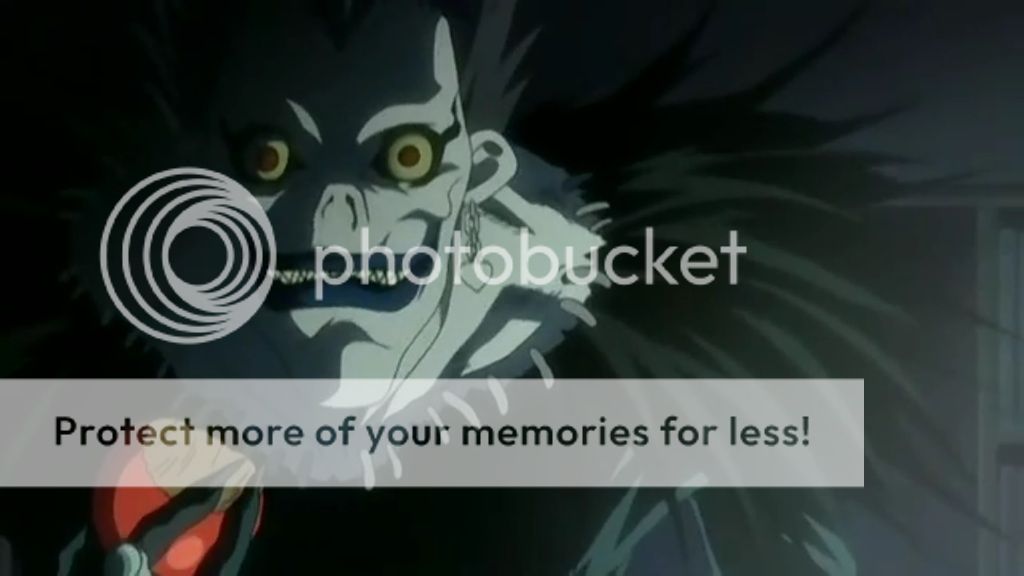"Meth Boat": Lost in Translation?
Who’s excited for Ghost in the Shell being in theatres? I’m not. Not only was this a train wreck, but it had the audacity to ruin the original premise in favour of a whitewashed, C-grade knock-off of Jason Bourne in a sci-fi world. It’s been a disaster years in the works, and it saddens me that this is acceptable in 2017. I only hope it never happens again-
On second-thought…
So Netflix dropped this little bundle of joy not too long ago, and, as expected, the internet freaked out. Ignoring the peculiarity of this over other, more-adaptable anime, claims of “whitewashing” surfaced again, such that no reasonable discourse could be had. As someone who's spent three pieces on Infinite Rainy Day, as well as one on his personal blog, deconstructing the whitewashing in Ghost in the Shell, I sympathize. But looking at it as an outsider, I’m not sure I’d go that far.
Let me explain.
See, adapting material from other cultures is tricky. On one hand, you have to make sure the material translates to your own culture. On the other hand, you also have to make sure the translation respects what you’re adapting. This can either work (see Edge of Tomorrow or The Departed,) or not work (see the remakes of Oldboy and Ghost in the Shell). It’s largely hit-or-miss, in other words, with the odds usually being against you.
One of the most-common ways foreign stories readapt themselves for Western consumption is by changing the cultural context. One such an example is Ringu, remade by Gore Verbinski in 2002 as The Ring. Both stories work similarly, a mysterious tape that kills its viewer within 7 days of being watched, but the characters, settings and cultural framing are entirely different. Yet because Verbinski understood what made the idea work, the remake does too.
Conversely, you have Oldboy. The original is a classic for many reasons, and lots of fans insisted for years that it remain untouched. So when director Spike Lee decided to remake the film for Western audiences, people were let-down when the end-result was a carbon copy of the original, except with American actors. Unlike The Ring, the film changed the cultural context, yet refused to add anything unique. As a result, it didn’t work.
Which leads back to Death Note. Despite not being a big fan of the anime, I got two episodes in it before I became bored, I recognize its place as a landmark in anime. I also know that it’s been re-adapted twice into live-action in Japan. It clearly has a lot riding on it given its reputation, especially coming off the heels of another anime adaptation that was a failure. So I get the backlash.
That having been said, I’m not on-board with it. For one, it’s taking a page from The Ring and changing the cultural context for Western audiences watching Netflix. And two, it’s being directed by cult-horror favourite Adam Wingard, whose work includes You’re Next and The Guest. The fact that Wingard is revered by modern horror fans should give some semblance of hope, especially since casting Willem Dafoe as Ryuk is an incredibly-inspired choice.
Besides, the argument can be turned around with the live-action Attack on Titan films. Despite being based on a Manga, the original story was set in a Euro-centric world. The cast of characters was practically all white, and their technology was reminiscent of Renaissance Age Europe. But when the live-action films were announced, everything was changed to Japanese, including the cast. Yet the story remained pretty much the same, so couldn’t that be argued as “yellowwashing”?
And yes: Hollywood has had a history of whitewashing in mainstream media for decades, while the reverse can’t be said because of limited resources and acting talent. Yet the claim of whitewashing here is tricky because it ignores the reality that this isn’t American characters pretending to be Japanese. Everything about the premise, right down to the setting, is being changed to accommodate Western sensibilities. So I think people need to calm down a bit.
Besides, I’m not so sure that this film will fail because the cast isn’t Japanese. It might actually fail because it’s jamming too much into one film. If anything, I think Wingard and Netflix should’ve taken a cue from Japan and made this two or three films, so as to allow the story to breathe. I like how it’s a Netflix exclusive, especially since I’ve liked a lot of the Netflix original content I’ve seen, but being one film might choke it. And that’s probably worse than whitewashing, as it looks to be trying.
And yeah, I don’t think the “remake” aspect is a big deal. I’m of the mindset that anything is fair game for remaking so long as there’s a valid reason, as nothing is inherently perfect. There’s always room for change and improvement, and in some cases it should be encouraged if it means getting the content out to a larger audience. It’s simply a shame this happens to be on the heels of a crappy film that suffered from racially tone-deaf writing and casting, or I’d be more optimistic about giving it a chance.
Oh… (Courtesy of Zero Media.)
On second-thought…
So Netflix dropped this little bundle of joy not too long ago, and, as expected, the internet freaked out. Ignoring the peculiarity of this over other, more-adaptable anime, claims of “whitewashing” surfaced again, such that no reasonable discourse could be had. As someone who's spent three pieces on Infinite Rainy Day, as well as one on his personal blog, deconstructing the whitewashing in Ghost in the Shell, I sympathize. But looking at it as an outsider, I’m not sure I’d go that far.
Let me explain.
See, adapting material from other cultures is tricky. On one hand, you have to make sure the material translates to your own culture. On the other hand, you also have to make sure the translation respects what you’re adapting. This can either work (see Edge of Tomorrow or The Departed,) or not work (see the remakes of Oldboy and Ghost in the Shell). It’s largely hit-or-miss, in other words, with the odds usually being against you.
One of the most-common ways foreign stories readapt themselves for Western consumption is by changing the cultural context. One such an example is Ringu, remade by Gore Verbinski in 2002 as The Ring. Both stories work similarly, a mysterious tape that kills its viewer within 7 days of being watched, but the characters, settings and cultural framing are entirely different. Yet because Verbinski understood what made the idea work, the remake does too.
Conversely, you have Oldboy. The original is a classic for many reasons, and lots of fans insisted for years that it remain untouched. So when director Spike Lee decided to remake the film for Western audiences, people were let-down when the end-result was a carbon copy of the original, except with American actors. Unlike The Ring, the film changed the cultural context, yet refused to add anything unique. As a result, it didn’t work.
Which leads back to Death Note. Despite not being a big fan of the anime, I got two episodes in it before I became bored, I recognize its place as a landmark in anime. I also know that it’s been re-adapted twice into live-action in Japan. It clearly has a lot riding on it given its reputation, especially coming off the heels of another anime adaptation that was a failure. So I get the backlash.
That having been said, I’m not on-board with it. For one, it’s taking a page from The Ring and changing the cultural context for Western audiences watching Netflix. And two, it’s being directed by cult-horror favourite Adam Wingard, whose work includes You’re Next and The Guest. The fact that Wingard is revered by modern horror fans should give some semblance of hope, especially since casting Willem Dafoe as Ryuk is an incredibly-inspired choice.
Besides, the argument can be turned around with the live-action Attack on Titan films. Despite being based on a Manga, the original story was set in a Euro-centric world. The cast of characters was practically all white, and their technology was reminiscent of Renaissance Age Europe. But when the live-action films were announced, everything was changed to Japanese, including the cast. Yet the story remained pretty much the same, so couldn’t that be argued as “yellowwashing”?
And yes: Hollywood has had a history of whitewashing in mainstream media for decades, while the reverse can’t be said because of limited resources and acting talent. Yet the claim of whitewashing here is tricky because it ignores the reality that this isn’t American characters pretending to be Japanese. Everything about the premise, right down to the setting, is being changed to accommodate Western sensibilities. So I think people need to calm down a bit.
Besides, I’m not so sure that this film will fail because the cast isn’t Japanese. It might actually fail because it’s jamming too much into one film. If anything, I think Wingard and Netflix should’ve taken a cue from Japan and made this two or three films, so as to allow the story to breathe. I like how it’s a Netflix exclusive, especially since I’ve liked a lot of the Netflix original content I’ve seen, but being one film might choke it. And that’s probably worse than whitewashing, as it looks to be trying.
And yeah, I don’t think the “remake” aspect is a big deal. I’m of the mindset that anything is fair game for remaking so long as there’s a valid reason, as nothing is inherently perfect. There’s always room for change and improvement, and in some cases it should be encouraged if it means getting the content out to a larger audience. It’s simply a shame this happens to be on the heels of a crappy film that suffered from racially tone-deaf writing and casting, or I’d be more optimistic about giving it a chance.




Comments
Post a Comment